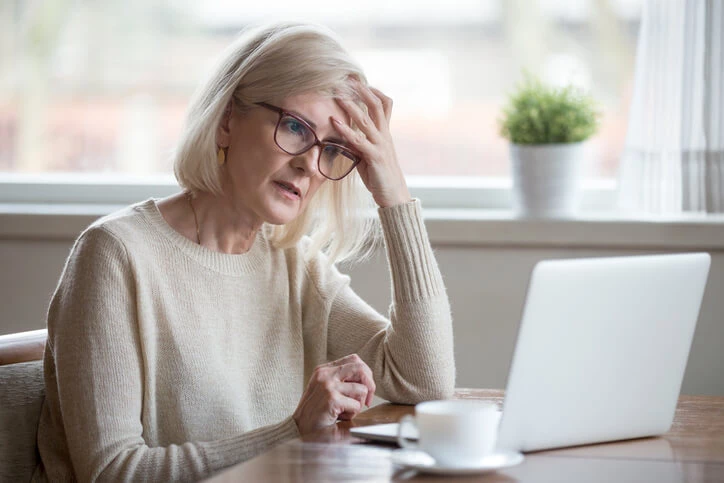PSYCHOLOGIST CONSULTATOION. BUY

We've all been afraid of something in our lives. If the fear is rational because we are in danger, the fear is justified. However, if not - we are dealing with a phobia.
In the literature, we can find many definitions of a phobia, but generally speaking, it is a constant fear reaction, disproportionate to the real threat, which can disturb the whole life of a person. The word phobia comes from the Greek, where phobos means fear [1].
What is carcinophobia (fear of cancer)?
There are many types of phobias. We can be afraid of open spaces (agoraphobia), feel afraid of public speaking (social phobias), we can also be afraid of specific objects or situations (specific, isolated phobias), such as cancer.
Carcinophobia is the fear of getting cancer.
According to the scientific literature:
Such an emotional state often leads to a situation in which, despite the lack of any symptoms or cancerous changes in the body, the disease exists in the imagination and thoughts of a person affected by carcinophobia and becomes real for him. Carcinophobia can be caused not only by fear for one's own health, but also for the health and life of relatives [2].
Also read: How to get used to cancer? The road to acceptance of cancer
What are the causes of carcinophobia?
The causes of specific, isolated phobias, which include the fear of cancer, include:
- genetic predispositions,
- irregularities related to the upbringing process, e.g. overprotectiveness,
- experience of trauma.
Carcinophobia usually affects people who tend to react with fear in various situations, including difficult ones. The individual's past experiences, such as the occurrence of cancer in family members or friends, their fight against the disease and the treatment process, may contribute to its formation. A phobia can occur when, for example, someone close to you dies of cancer shortly after diagnosis.
The information that the patient receives from the doctor in the diagnostic process also has a significant impact on the appearance of carcinophobia. Often it is enough to suspect cancer, so that in the later period, despite the lack of confirmation of cancer, the fear of cancer (disease) remains.
Information reaching us from the mass media may also contribute to carcinophobia. Typically, when talking about scientific successes related to the early detection of cancer, they refer to cancer as the "major killer of the 21st century"[2], which can cause concern.
It usually happens that not one factor, but their coexistence, causes carcinophobia. Our views and beliefs about the disease, as well as our general psychophysical condition, are also of great importance.
The prevalence of carcinophobia
It is difficult to determine the exact data on strictly defined variants of isolated phobia, including carcinophobia. It is estimated that up to 20% of people suffer from specific phobias. population [3].

Symptoms of carcinophobia
As in all types of phobias, here we can distinguish the following somatic symptoms, which are the result of increased fear, including: :
- feeling short of breath,
- sweating,
- fast heartbeat,
- dizziness,
- nausea,
- feeling hot,
- excessive muscle tension,
- body stiffness.
In addition, in carcinophobia there are also psychological symptoms that are associated with the patient's belief that he is developing cancer. We include them
- intrusive thoughts about cancer - the patient focuses all his attention on the fear of being sick,
- misinterpretation of somatic symptoms - in the case of people suffering from carcinophobia, even the slightest neuralgia can be interpreted as a symptom of the disease,
- fear of death caused by cancer - this fear can lead to reduced well-being, apathy, isolation and withdrawal from all social contacts,
- severe anxiety, feeling tense,
- problems with sleeping,
- problems concentrating.
Patients usually take one of two attitudes: either they visit doctors frequently to confirm their fears, they read a lot on the Internet about their imagined illness, or they avoid all tests.
Recognizing the fear of cancer
The ICD 10[4] classification presents the following criteria for recognizing carcinophobia:
- mental or autonomic symptoms are a primary manifestation of anxiety, and not secondary to such other symptoms as delusions or obsessive thoughts,
- the fear is limited only to the presence of a specific phobic object or phobic situation,
- the phobic person avoids the situation whenever possible.
Sometimes the diagnosis of the disorder requires time and a thorough interview, because the symptoms of carcinophobia can be diagnosed as a phobia, hypochondriac disorder or delusional syndrome [4].
Also read: Psychosis - types, symptoms and treatment
Who Diagnoses Carcinophobia?
If we feel that we may suffer from carcinophobia, it is worth turning to a psychiatrist or psychologist who will conduct an interview, ask for appropriate diagnostic tests and make a diagnosis. What's more, he will also take care of the healing process
Treatment of carcinophobia
The treatment of cancer anxiety depends on the final diagnosis and prevailing symptoms and is tailored to the individual needs of the patient. It usually proceeds in two ways: psychological and pharmacological interventions take place. Psychoeducation and changing key aspects of cognitive content are of great importance in the case of the former, such as:
- exaggerated beliefs,
- arbitrary inference,
- selective attention.
Usually, the therapy is conducted in the cognitive-behavioral approach. In order to reduce anxiety, for example, desensitization is used, i.e. gradual "desensitization" of the patient to the stimulus causing anxiety. Pharmacotherapy includes benzodiazepines.
Complications of carcinophobia
Unfortunately, carcinophobia significantly hinders human functioning. Constant focus on a possible disease causes deterioration of efficiency both in the professional and private spheres. Often the patient loses contact with friends because he does not leave the house, neglects himself and his family, loses himself in fear and sadness. It also strengthens the belief that one's arguments are right, which can lead to strong emotional disorders, including depression. Fear can sometimes dominate every area of life and in extreme cases make it impossible to work or significantly disrupt family relationships.
Sources:
1] Wolańczyk T., Komender J., Zaburzenia emocjonalne i behawioralne u dzieci, PZWL, Warszawa 2005, s. 154.
[2] Węsierska-Gądek I.A., Czy można świadomym stylem życia zredukować indywidualne ryzyko zachorowania na raka? Fakty i mity o etiologii chorób nowotworowych, „Psychoonkologia 2018” 22 (1), s. 23-33.
[3] Adamczyk K. i in., Rzadkie fobie specyficzne-rodzaje i leczenie, „Via Medica 2018”, t. 15, nr 3, s. 148–154.
[4] Klasyfikacja zaburzeń psychicznych i zaburzeń zachowania w ICD 10, Vesalius, Warszawa 2000.
Prezentowanych informacji o charakterze medycznym nie należy traktować jako wytycznych postępowania medycznego w stosunku do każdego pacjenta. O postępowaniu medycznym, w tym o zakresie i częstotliwości badań diagnostycznych i/lub procedur terapeutycznych decyduje lekarz indywidualnie, zgodnie ze wskazaniami medycznymi, które ustala po zapoznaniu się ze stanem pacjenta. Lekarz podejmuje decyzję w porozumieniu z pacjentem. W przypadku chęci realizacji badań nieobjętych wskazaniami lekarskimi, pacjent ma możliwość ich odpłatnego wykonania. Należy potwierdzić przy zakupie badania szczegóły do jego przygotowania. |
